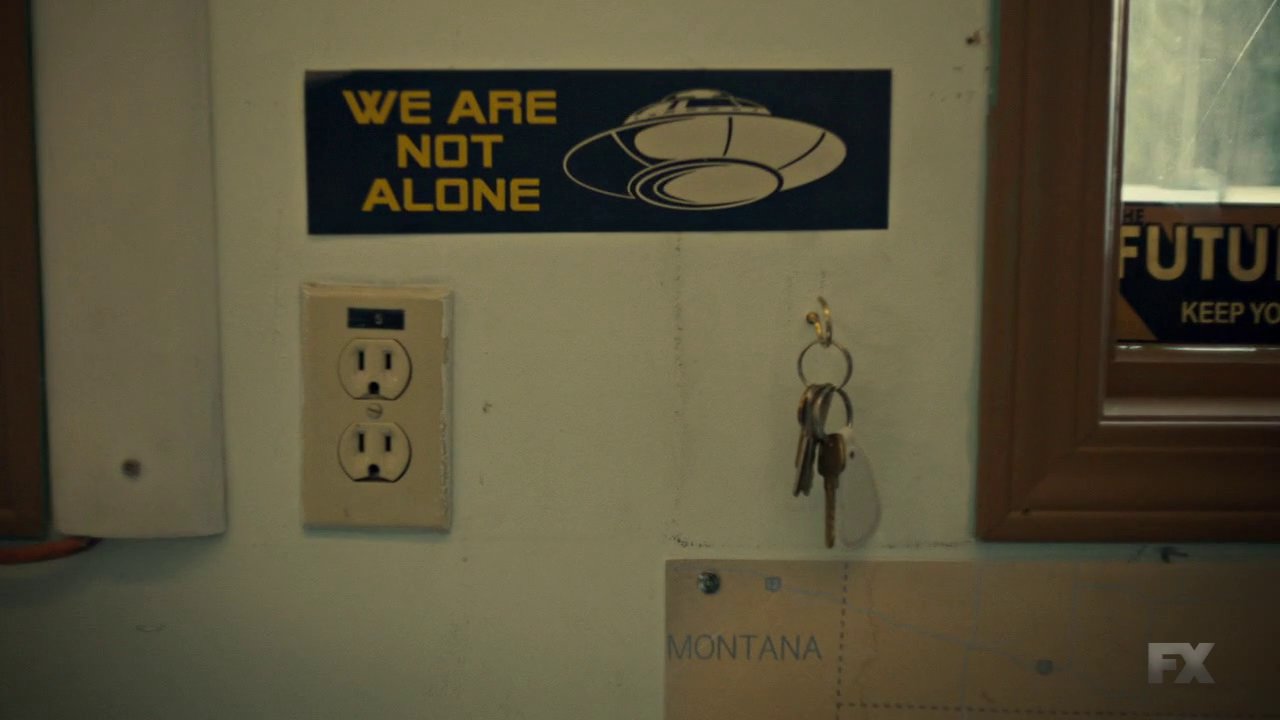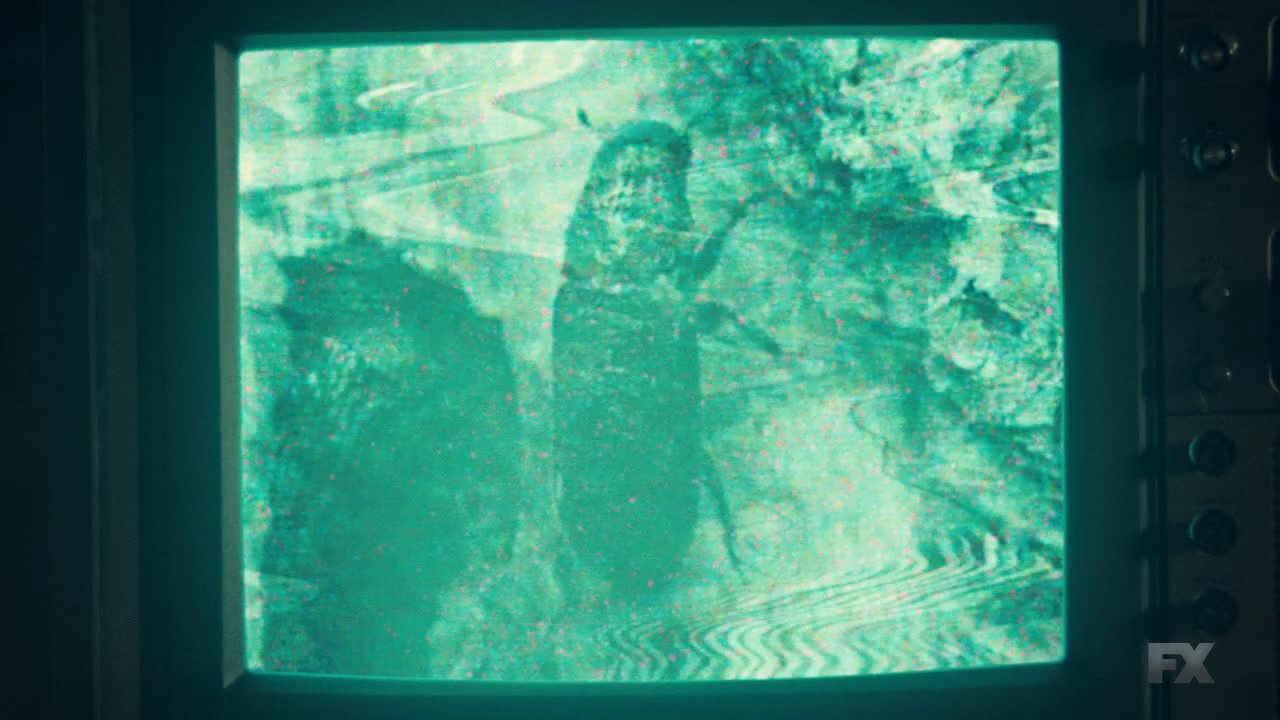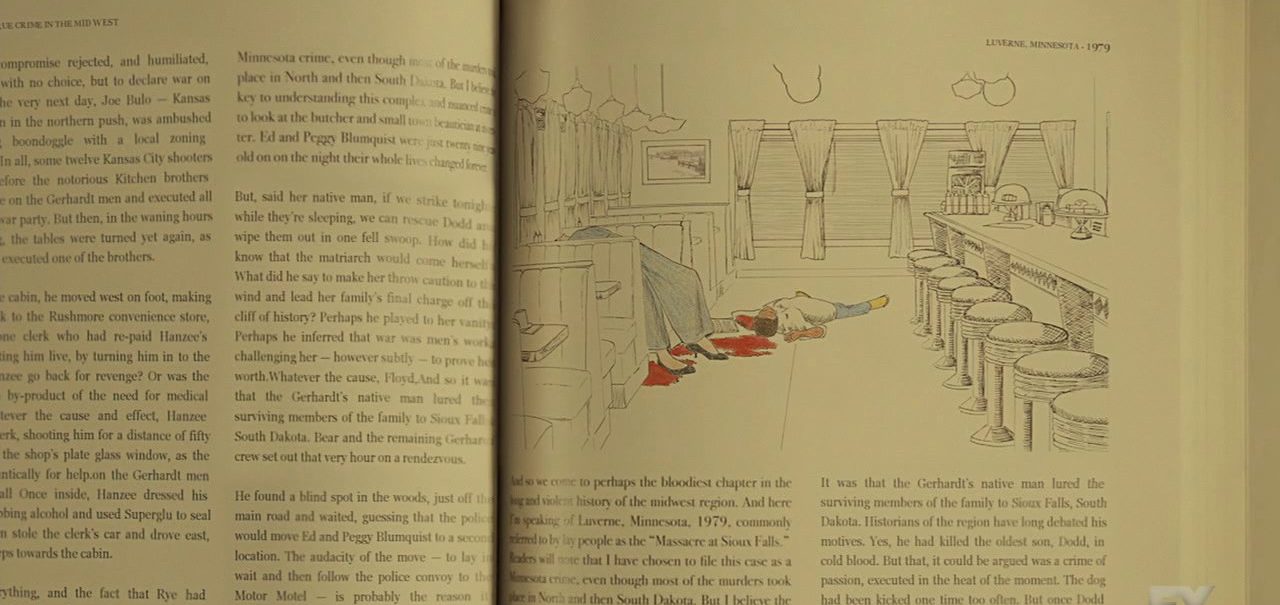Noah Hawley is the author of one of the best TV shows today if not the best : Fargo, whose season 2 was broadcast last Fall on FX. He is also a writer (A Conspiracy of Tall Men, Other People’s Weddings, The Good father). From late November 2015 until last February, French film critic Emmanuel Burdeau was lucky enough to exchange several long e-mails with Noah Hawley. We are glad to publish this correspondence both in English and in a French translation. It could continue further, at least we certainly hope so. About Fargo, readers who are sufficiently familiar with French will read the two volumes essay Emmanuel Burdeau published about the first series in a French magazine called Vacarme. First part here, and second part there.
30 novembre 2015
Emmanuel Bureau : What are you doing these days and weeks, while season 2 of Fargo is right in the middle of being broadcast ? Are you already working on season 3 ? Watching how things go with this one, reviews, ratings and everything ? Doing a lot of promotion ? Already writing a new book ?
This might not be such a simple question after all : How does a writer like yourself — who seems to have some sort of an obsession with meterology, the weather… — deal with the very peculiar time(s), rhythms, cycles and seasons of a TV show ?
Noah Hawley : Okay –
Right now I’m at the airport. I spend a lot of time at the airport the days, and on airplanes. The shows I make can make it halfway around the world in a tenth of a second, but I’m still lagging behind, taking off my shoes and putting my arms up over my head. I travel enough that I have a packing system, a routine for which it’s go inside high bag and in what order. This is also called « writing time, » as when I’m in Los Angeles mostly what I’m doing is answering questions, going to meetings and overseeing writers rooms.
We are seven hours into airing this year’s Fargo. I personally do not call them « seasons » as that is a tv term meant to define a yearly installment of a long running show. To me, these are ten hour movies, each standing in its own as a complete story with a beginning, middle and end. The fact that each refers to the other in some way is not a critical part of their identity. It is a bonus feature creating a mindspace in which viewers can occupy while they’re thinking about the stories we tell. A universe, for lack of a less overused word, with its own geography, its own sensibility and rules.
I like to watch live with an audience, to try to see the story with fresh eyes, each turn, as experienced by a viewer for the first time. A big part of my story process is trying to track at all times what the audience expects to happen, and what they want to happen. I am a manager of expectations, an author who’s main job isn’t to please a crowd, but to tell a compelling and unpredictable story that, in the end, feels inevitable. At the same time, if you’re not going to satisfy the audience’s desire for how things turn out, you better have a very good reason and an extremely satisfying alternative.
As has been reported in the press, there are several other projects I’m working on right now: an adaptation of Kurt Vonnegut’s masterpiece, Cat’s Cradle a subversive and surreal genre foray into a Marvel character who is either insane or has mutant powers (or both), etc. My fifth novel comes out in the US in May 2016, and I am putting finishing touches on that. It will be available in France soon after.
I am also parenting a three year old boy and an eight year old girl, who deserve all the thought and attention I can give them.

1er décembre 2015
How would you describe the main differences between writing a novel and writing a TV show ?
Not only in terms of one being a lonely experience and the other being — at least partly — a collective one, but also in terms of writing per se, achieving your goals as an author, the relationship with the readers / the audience that you just described, the complexity, etc. ?
N.H. : Looking back over my last answer I realize some of the words are garbled. This is because I’m answering these questions on my phone, which is not what any of the great novelists ever considered would be the main writing device of the future. The tyranny of auto correct.
I have driven twenty minutes to breakfast on my way to the office only to remember I left the kettle on. So after a civilized meal I will retrace my steps, fighting the famed LA traffic to stop my house from burning down.
I’ve taken to saying that writing a novel is like driving on a country road. You go slow, look around. Sometimes you pull off to the side, stretch your legs, have a picnic. Hollywood is a highway. There is no time for idle reflection. The most important thing I’ve done on Fargo in correcting this is to separate the writing from the production. This way I can fully explore all the characters and ideas without the gun of production to my head.
And yet the phone rings constantly, and there are always lunches and meetings and logistical conversations about all the various projects I have taken on in my hubris. As a result there is simply less time for creative thought, which is a shame.
If there really are only seven stories we can tell, than the only control we have over making them new is the way we tell them.
This latest book was sold on half a manuscript in the days after our first year aired. This meant I had to finish it as I was making year two. In other words, I would stealing time from the highway to detour down a country road for a few hours at a time. I don’t recommend this approach, though I seem to have pulled it off. The biggest problem is reading time. In order to polish a manuscript you have to read it, over and over, and this takes days. And meanwhile the phone is ringing, etc.
As far as differences in my approach to the mediums I would say I try to follow the same philosophies about how the structure of a story should reflect the content of a story. I like to play with the way a story is told to create something unexpected. If there really are only seven stories we can tell, than the only control we have over making them new is the way we tell them.
The collective mind part of television writing — a team of writers — has its uses (different voices, points of view) most obviously the pure force of collective brain power trying to solve a puzzle. But it’s also a source of stress. That brain must be trained and channeled at all times. A vision is a hard thing to convey, to truly make someone see something the way you see it, and more often then not I’ll give some gentle guidance and then just fix it on the page.
The goal is always to make something timeless. Which is getting harder to do in our age of gadgets and fads.
28 décembre 2015
Are you happy with how everything went ? It seems that this season even got bigger praises than the first one, which is huge !
N.H. : I am very happy with how the season was received. Dumbfounded might be a better word, as one can hope but never expect to surpass one’s self – though the very notion that one story could be better than another seems misplaced. While we were making the second year journalists asked me if I felt a lot of pressure given the critical and award success we’d had on the first year. I said luckily the only pressure I felt was to make the best version of the new story. A creative pressure, in other words, not a pressure to achieve some kind of tangible real world result. And this was true. I can’t control the way my work is received. All I can control is the work itself.
The finale this year is much quieter than last, where there was action until the very last scene. Here we dispensed with the plot thrills early and then gave the audience a true denouement, in which we allowed time and fate to catch up with everyone, allowed characters to try to make sense of what had happened and make peace with their realities. This is the other aspect of a « true » story, that things can’t unfold neatly and satisfyingly, the way they do in fiction. Sometimes the bad guy gets away. Sometimes he finds a fate worse than death – say trapped in an office for all time – and sometimes he escapes Scott free and starts his own empire – only to meet his violent end decades later as a result of a small move he has made, from which he never expected any measure of consequence.
I left a lot of open ends this year, thematically. Mostly what I did was trust the audience. I trusted them to find their own meaning, to choose the characters they most identified with and root for them, trusted them to walk away from each hour and really think about what resonated for them, trusted them to feel a complicated set of emotions, to find things funny that then made them uncomfortable, or to realize that rather than being meaningless (as Camus wrote) life (and our story) means what you decide it means.
In the end, I guess, I’m amazed by how personally audiences took the work, how much longing there is in the world for a return to basic decency, not in a simplistic sense – the good guy always wins – but in how much people want their every day efforts to be recognized. We’re all just doing the best we can. None of us are super heroes. None of us are right every time. We try our best and we fail often, but in the end, if there is any kind if justice in the world, we will end each day tucking our children into bed and turning off the light beside the person we love the most.

15 janvier 2016
How would you describe the relationship between the two years ? In what extent would you say it’s both the same and a different show ? I guess that asking you this is also asking you about how you look at the challenges and possibilities of a third year.
N.H. : If anything connects the two years it’s tone. The general rule for me seems to be Fargo is a tragedy with a happy ending. There is a morality to it, where for the most part people get what they deserve. That said, we never want to be predictable. And sometimes both a good end and a bad end for characters aren’t what you expect.
The general rule for me seems to be Fargo is a tragedy with a happy ending.
My personal feeling is that the sensibility of the show didn’t change between years, but the scale of the story expanded dramatically — on a plot, character and thematic basis. Metaphorically, we had to teach the audience a new language, before we could write them a novel. And yet the seeds for all of our most inventive elements exist in the first year. What are two fake Ronald Reagan movies, except an extrapolation for episode 105’s parable sequence? The post-modern storytelling devices played a bigger role in our second year, but can be seen in year one. The trick is in keeping the story grounded emotionally. The pull and threat of the crime story creates a narrative force that drives us forward. Our frequent creative, structural departures then create a playful tension, forcing the audience to engage their emotions and imaginations right at the moments where most stories succumb to action and plot. We ask them to lean forward and think, as opposed to sitting back and simply watching.
Oh, and it’s also funny, which both creates more investment (when you put characters in danger who make the audience laugh, we worry) and also disarms certain arch cliches of violence. In other words, we always try to do the unexpected without ever being gimmicky or flashy.
Not sure if this helps or explains it. Talk soon.
2 février 2016
You’re talking about editing. Which makes me think I haven’t asked you a very obvious and very important question. To put it bluntly : what is exactly your job on Fargo ? You’re the showrunner, your provide the main ideas. You directed at least one episode. But how far does exactly your involvement go ? What about the writing and the editing of each episode, for instance ? Do you make sure that you have everything under control ?
N.H. : There isn’t a creative decision on the show that I don’t make. I start with the underlying idea, work with the writers to develop and write each hour, choose the cast, work with the designers on sets, costumes, props, etc. The visual style and look of the show is designed with the DP. I spend hours with every director prepping them on how to shoot each hour so that it feels as if it was shot by a single director. I then work with the editors, sound designer, composer and music supervisor to finish the show.
At the same time I manage the production, oversee all the scheduling and budgeting and am the point person for the studio and network. And all of that said, I couldn’t do any of it without the geniuses who work with me on every level; the directors, designers, actors, artists, producers, etc.
7 février 2016
There are so many references to politics and American Presidents in Fargo 2 (not mentionning of course The Good Father) that I have to ask you about it.
There are many things I’d like to discuss with you in that perspective, but my first question is : How do you look at the 2016 Presidential Campaign so far ?
N.H. : Now you’re just trying to get me into trouble.



